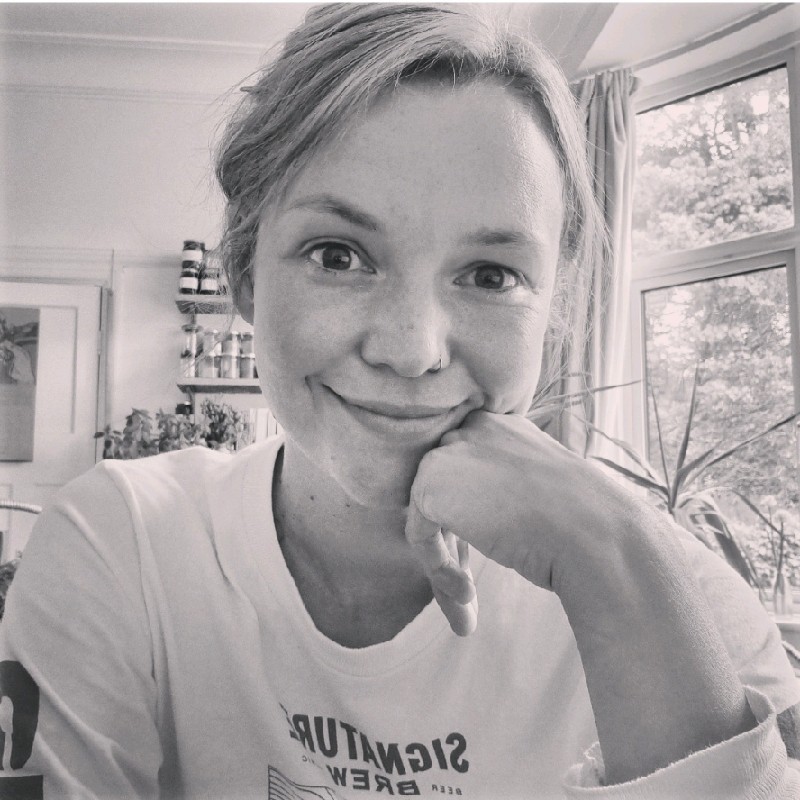Our world-leading environment and sustainability research underpins a wide range of postgraduate programmes. In our Meet our Alumni series we hear from graduates of our MSc courses within the Graduate School of Environment and Sustainability and learn about their experiences at the University of Exeter, Cornwall. Today we hear from Naomi-Beth Dixon who graduated from our MSc Sustainable Development course. Naomi-Beth went on to become a Freshwater Lead Advisor with Natural England.
Country: United Kingdom
Sector: Government
Job title: Freshwater Lead Adviser
Subject of study: MSc Sustainable Development
Year of graduation: 2020
Current Employer/Organisation Name
Natural England
What have you been doing since leaving Exeter, and what are you doing now?
I graduated from Exeter in 2020 and managed to secure a role with Natural England in the same year. Initially I was a Lead Adviser in the Sustainable Development team, advising local planning authorities and other stakeholders on the impact of development on protected habitats. In 2022 I was successful in securing a role in the small freshwater team. My current role involves advising authorities, organisations and individuals on the conservation and enhancement of freshwater biodiversity, with a particular focus on designated and habitats sites across Devon and Cornwall.
Why did you choose this career? And what do you enjoy most about your work?
Prior to my Sustainable Development MSc I worked with Scottish Water as a Water Quality Regulatory Analyst, and had focussed my Earth Science BSc on hydrology. As Freshwater Lead Adviser I enjoy being able to specialise in a field I find interesting, whilst having a dynamic role that takes me all over Devon, Cornwall and the Isles of Scilly. In addition to the statutory role in providing advice to water companies and other authorities, I also have the opportunity to work with bodies such as Westcountry Rivers Trust and the Wildlife Trust, to support freshwater habitat restoration proposals.
Please tell us if you were a member of any societies, groups or sports clubs?
As a ‘mature’ student I didn’t join any societies or clubs, however I made a fantastic group of friends who I remain very close with today. As an adult it’s not that easy to make lasting friendships, but my time at Exeter proved an exception to that.
What did you enjoy most about your programme and what was the biggest highlight?
I enjoyed the sheer variety of subjects I could cover – for me it was a creative free for all. As long as I had a focus on sustainability, I was able to explore any topic that I wanted. I found it very fulfilling and it certainly helped me explore the complexity of sustainability in a much broader way than I’d have been able had I not studied the MSc.
What did you enjoy most about studying here?
The staff, the location (Falmouth and Penryn), the support, the facilities, the people I met, the fired breakfasts….
Why did you choose to study at Exeter?
Location – I had decided to move to Falmouth and was very happy to find a course I wanted to study at such a great campus.
What skills and experiences have been most useful for your career?
I learned to think about a specific, scientific subject in a very broad way, to consider impacts, feedbacks and differing opinions before making a judgement. This is a very useful skill to have developed for my current career, in which I have to balance public interest over habitat protection.
What advice would you give to a current student who wishes to pursue your career?
Don’t worry that you might not have the ‘correct’ experience. The way I’ve written it above it sounds like my path to my current career was very linear – it wasn’t! What isn’t included is the 10 years working in retail, the fear of quitting a ‘good’ job to go back to school, the stress of applying for roles and figuring out how to act in specific interviews. My advice would be to seek advice at all turns – contact the person who has the job you want, be inquisitive. Be aware that interview processes can differ and can be a bit like getting a dance routine down – if it says it’s in STAR format, make sure you answer in STAR format! Keep interested in contemporary discussions about the field you’re interested in, check out Eventbrite for talks and workshops to keep you knowledge up to date. Don’t plan on being rich, and enjoy working with people who work in a field because they’re passionate about it despite the low wages. Don’t worry too much about having a specialism – knowing a little about a lot is important in sustainability and in industry.
What are your plans for the future?
For the moment continue in my current role, hopefully securing a Senior position. I’d like to take a sabbatical to travel and work abroad before I’m too old for the visa, and then would like to return and further my knowledge and experience in freshwater protection and restoration.
The Graduate School of Environment and Sustainability brings together experts from across the spectrum of earth and life sciences, engineering, humanities, social sciences and business. Our programmes are all designed with a focus on developing solutions to global challenges and creating a better future for our planet and its people. Help lead a global Greener, Healthier and Fairer revolution by studying one of our world-leading, interdisciplinary Masters degrees here at the University of Exeter, Cornwall. See our Masters programmes here.

